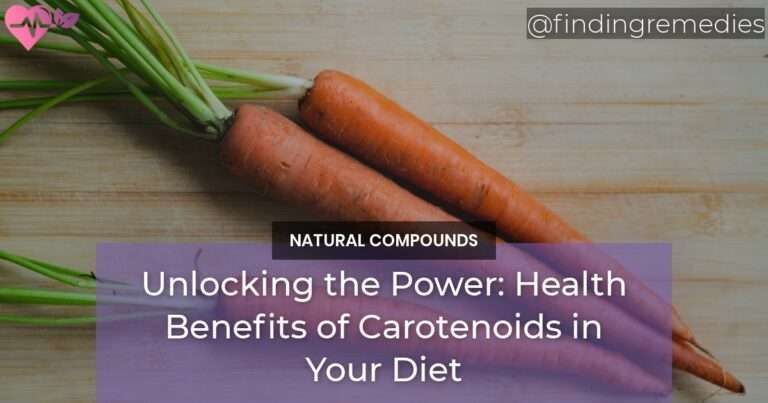Carotenoids are a group of powerful antioxidants found in certain plant-based foods. They are associated with numerous health benefits, including improved eye health, reduced inflammation, and a lower risk of some chronic diseases.
In this article, we will discuss the potential health benefits of carotenoids, the best sources of carotenoids, and how to incorporate these beneficial nutrients into your diet. We will also explore the potential risks associated with consuming too much carotenoids. With this information, you can make an informed decision about your carotenoid intake and enjoy the many potential health benefits of these powerful compounds.
Table of Contents
What are Carotenoids?
Carotenoids are natural pigments that give fruits and vegetables their vibrant colors. These phytonutrients are essential for plant growth and development, and they also have numerous health benefits for humans.
Types of Carotenoids
There are over 600 different types of carotenoids, but the most common ones found in food include:
- Beta-carotene – found in carrots, sweet potatoes, and spinach
- Alpha-carotene – found in pumpkins and carrots
- Lycopene – found in tomatoes, watermelon, and pink grapefruit
- Lutein – found in leafy greens like kale and spinach
- Zeaxanthin – found in peppers, corn, and eggs
- Astaxanthin – found in salmon, shrimp, and crab
Sources of Carotenoids
Carotenoids are found in a variety of fruits, vegetables, and other foods, including:
- Carrots
- Sweet potatoes
- Spinach
- Pumpkins
- Tomatoes
- Watermelon
- Pink grapefruit
- Kale
- Peppers
- Corn
- Eggs
- Salmon
- Shrimp
- Crab
Health Benefits of Carotenoids
Carotenoids and Cardiovascular Diseases
Carotenoids have been shown to have a positive effect on heart health. Beta-carotene, for example, has been linked to a reduced risk of heart disease. Lycopene has also been found to lower blood pressure and improve endothelial function, which is important for maintaining healthy blood vessels.
Carotenoids and Cancer Prevention
Carotenoids have potent antioxidant properties, which can help protect cells from damage caused by free radicals. This, in turn, may reduce the risk of cancer. Studies have shown that diets rich in carotenoids, such as lycopene and beta-carotene, are associated with a lower risk of certain types of cancer, including lung, breast, and prostate cancer.
Carotenoids and Age-Related Macular Degeneration
Lutein and zeaxanthin are carotenoids that are important for vision health. They are found in high concentrations in the macula of the eye, where they help protect against damage from blue light. Studies have shown that diets high in lutein and zeaxanthin may reduce the risk of age-related macular degeneration, which is a leading cause of blindness in older adults.
Carotenoids and Inflammation
Carotenoids have anti-inflammatory properties, which may help reduce the risk of chronic diseases such as arthritis, diabetes, and heart disease. Astaxanthin, for example, has been shown to reduce markers of inflammation in the body.
Other Health Benefits of Carotenoids
Carotenoids may also have other health-promoting effects, including:
- Boosting the immune system
- Improving cognitive function
- Reducing the risk of asthma
Safety and Risk Factors
Safety of Carotenoids
Carotenoids are generally considered safe when consumed in food amounts. However, high doses of certain carotenoids, such as beta-carotene, can be toxic when taken in supplement form.
Risk Factors Associated with Carotenoids
While carotenoids have many health benefits, they can also have some risks. For example, smokers who consume high amounts of beta-carotene may be at an increased risk of lung cancer. It is important to consume carotenoids in moderation and speak with a healthcare provider before taking any dietary supplements.
Conclusion
Carotenoids are important nutrients that have numerous health benefits. They can be found in a variety of carotenoid-rich foods and can help protect against chronic diseases such as cancer, heart disease, and age-related macular degeneration. As with any nutrient, it is important to consume carotenoids in moderation and speak with a healthcare provider before taking any dietary supplements.

